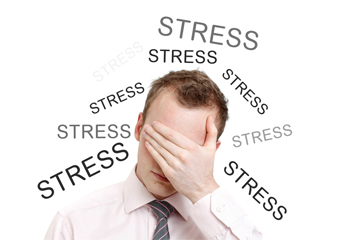 Stress is a problem that everyone experiences at some point in life. While it is quite normal to feel stressed sometimes, anxiety that persists can have negative consequences. If not managed properly, stress can affect your health and mental wellbeing – even though you might not realize it.
Stress is a problem that everyone experiences at some point in life. While it is quite normal to feel stressed sometimes, anxiety that persists can have negative consequences. If not managed properly, stress can affect your health and mental wellbeing – even though you might not realize it.
Though we can’t altogether avoid stress, we can learn to deal with it. To manage it, you have to understand stress symptoms, which can affect your body, your feelings, and your behavior. Here are the common stress symptoms and associated behaviors:
| Body |
Mood |
Behavior |
Cognitive |
| Headache |
Anxiety and agitation |
| Overeating or under eating |
|
|
Constant worrying |
| Muscle tension or pain |
Restlessness |
|
Forgetfulness and disorganization or Memory problems |
| Chest pain, Rapid heart rate |
Lack of motivation or focus |
|
Poor judgment |
| Fatigue, Nausea |
Feeling overwhelmed |
|
Being pessimistic or seeing only the negative side |
| Stomach upset |
Irritability or anger |
|
Anxious or Racing thoughts |
| Sleep problems |
Sadness or depression |
|
Constant worrying |
| Diarrhea or constipation |
Loneliness and isolation |
Sleeping too much or too little |
|
| Frequent colds or flu |
Other mental or emotional health problems |
Nervous habits (e.g. nail biting, pacing) |
|
Chronic stress can lead the body to produce stress hormones that cause conditions like increasing heart rate, constricting blood levels, chest pain, elevated cholesterol levels, a weakened immune system, and depression. Learning how to manage stress is crucial to reduce risks of these serious conditions. Here are some strategies to keep stress in check:
- Get proper sleep: One of the major reasons for stress is lack of sleep. So it’s very important to get a good night sleep – at least 6-8 hours is recommended to de-stress and recharge your system. Before going to bed, take a warm bath, turn off the TV, and dim the lights or read a calming book to relax your mind and body.
- Avoid unhealthy coping mechanisms: Avoid unhealthy coping mechanisms such as alcohol, smoking and drugs. Stimulants like caffeine and nicotine can actually increase stress. Alcohol can aggravate anxiety and trigger panic attacks. So when you’re stressed, avoid these stimulants or at least, reduce consumption. Drinking distilled water, herbal teas, or diluted natural fresh juices will keep you hydrated and help you cope with stress.
- Try a relaxation technique: Meditation, tai chi, yoga, and deep breathing are widely recommended relaxation techniques. Find a quiet place and spend time to clear the mind, body, and soul. Experts say that deep breathing offsets the effects of stress by slowing the heart rate and lowering blood pressure.
- Exercise: Make exercise a part of your daily routine as it can keep your body healthy and is also a great stress reliever. Taking a brisk walk in fresh air can reduce the stress levels. Activities like walking, swimming and yoga are other good options to de-stress.
- Eat healthy: A well-nourished body can better cope with stress, so be mindful of what you eat. Balanced meals are important to keep your energy levels up and your mind clear throughout the day. Avoid caffeine and sugary foods and drinks.
- Laugh: Studies say that laughing releases “happiness hormones” which decreases cortisol and adrenaline levels, and reduces the level of stress hormones.
- Avoid or manage the stressors: Identify the sources of stress in your life and avoid or manage it. If it’s a person who stresses you out, try to limit the time you spend with that person. If you can’t avoid a stressful situation, try to alter it or adapt to it.
- Express your feelings instead of suppressing them: Be more assertive and communicate your concerns in an open and respectful way. Suppressing your feelings can cause resentment to build and elevate anxiety.
- Appreciate yourself: Do your best and be proud of your achievements. Don’t worry about perfection if you can’t achieve it – be happy with the closest to perfection you can accomplish.
- Maintain a positive attitude: Try to focus on things that you can do well and make an effort to replace negative thoughts with positive ones. There are some things that you cannot change, so learn how to respond in the right way.
If you’re taken steps to control your stress but your symptoms continue, consider seeking medical advice. A professional therapist can help you identify the sources of your stress and help you learn new coping tools.
 Stress is a problem that everyone experiences at some point in life. While it is quite normal to feel stressed sometimes, anxiety that persists can have negative consequences. If not managed properly, stress can affect your health and mental wellbeing – even though you might not realize it.
Stress is a problem that everyone experiences at some point in life. While it is quite normal to feel stressed sometimes, anxiety that persists can have negative consequences. If not managed properly, stress can affect your health and mental wellbeing – even though you might not realize it.